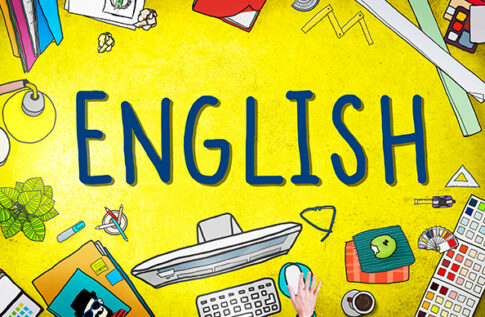ALT(外国語指導助手)の先生と英語で会話をする際に役立つ英単語をいくつか紹介します。授業や日常会話で使える単語です。
授業関連
- Lesson (レッスン) – 授業
- Homework (ホームワーク) – 宿題
- Exercise (エクササイズ) – 練習問題
- Question (クエスチョン) – 質問
- Answer (アンサー) – 答え
- Practice (プラクティス) – 練習
- Pronunciation (プロナンシエーション) – 発音
- Grammar (グラマー) – 文法
- Sentence (センテンス) – 文
- Vocabulary (ボキャブラリー) – 語彙
- Translation (トランスレーション) – 翻訳
- Group work (グループワーク) – グループ作業
- Partner (パートナー) – ペア
- Listening (リスニング) – 聞き取り
- Speaking (スピーキング) – 会話、話すこと
- Reading (リーディング) – 読解
- Writing (ライティング) – 書くこと
日常会話
- How are you? (ハウ アー ユー?) – 元気ですか?
- Nice to meet you. (ナイス トゥ ミート ユー) – はじめまして。
- What did you do over the weekend? (ワット ディド ユー ドゥ オーバー ザ ウィークエンド?) – 週末は何をしましたか?
- Can you help me with this? (キャン ユー ヘルプ ミー ウィズ ディス?) – これを手伝ってくれますか?
- Could you explain that again? (クッド ユー エクスプレイン ザット アゲイン?) – もう一度説明していただけますか?
- What does this word mean? (ワット ダズ ディス ワード ミーン?) – この単語はどういう意味ですか?
- Can you correct my pronunciation? (キャン ユー コレクト マイ プロナンシエーション?) – 発音を直してくれますか?
- What’s the difference between these two? (ワッツ ザ ディファレンス ビトゥイーン ジーズ トゥー?) – これら二つの違いは何ですか?
- Do you have any tips for learning English? (ドゥ ユー ハブ エニ ティップス フォー ラーニング イングリッシュ?) – 英語を学ぶためのコツはありますか?
その他
- Classroom (クラスルーム) – 教室
- Schedule (スケジュール) – 予定、時間割
- Break time (ブレイクタイム) – 休憩時間
- Textbook (テキストブック) – 教科書
- Answer sheet (アンサシート) – 解答用紙
- Activity (アクティビティ) – アクティビティ、活動
- Dialogue (ダイアログ) – 会話練習
- Project (プロジェクト) – プロジェクト、課題
- Example (イグザンプル) – 例
- Assignment (アサインメント) – 課題
これらの単語を使うことで、ALTの先生とのコミュニケーションがスムーズにできるようになりますね!
英語の教師とALTの先生の間でよくある英語のやりとり
英語の教師と補助役のALTの先生との間でのやりとりは、授業の進行やアクティビティの準備、クラス運営についてのコミュニケーションが中心です。以下はそのシチュエーションでよくある英語のやりとりの例です。
授業の準備や進行に関するやりとり
授業前の打ち合わせ
English Teacher:
“Today, we’re focusing on vocabulary related to food. Could you help lead the speaking activity?”
(今日は食べ物に関する語彙に焦点を当てます。スピーキングのアクティビティを進行してもらえますか?)
ALT:
“Sure! I can ask the students to talk about their favorite dishes and ingredients.”
(もちろんです!生徒に好きな料理や材料について話してもらうようにしますね。)
授業中のサポート
English Teacher:
“Could you walk around and assist the students during the group activity?”
(グループ活動中に生徒のサポートをお願いできますか?)
ALT:
“Of course. I’ll make sure they understand the instructions.”
(もちろんです。生徒が指示を理解しているか確認しますね。)
生徒の発音や文法の確認
English Teacher:
“Could you help with correcting pronunciation during the speaking practice?”
(スピーキング練習中に発音の訂正を手伝ってもらえますか?)
ALT:
“Absolutely. I’ll listen to them and give them feedback on their pronunciation.”
(もちろんです。生徒の発音を聞いてフィードバックをしますね。)
授業後のフィードバックや相談
授業の感想
English Teacher:
“How did the students do during the speaking activity?”
(スピーキングのアクティビティで、生徒たちはどうでしたか?)
ALT:
“They did quite well, though some of them struggled with certain vocabulary. I think more practice with those words would be helpful.”
(かなりよくできていましたが、いくつかの単語で苦労している生徒もいました。その語彙をもう少し練習すると良いと思います。)
次の授業の計画
English Teacher:
“For the next lesson, I’m planning to introduce a reading activity. Do you think it would be a good idea to pair students up for this?”
(次の授業ではリーディングのアクティビティを導入する予定ですが、生徒をペアにするのは良いアイデアだと思いますか?)
ALT:
“Yes, that sounds great. Pairing them up will encourage collaboration, and they can help each other with difficult words.”
(そうですね、それは良いアイデアだと思います。ペアにすることでお互いに助け合い、難しい単語も一緒に学べますね。)
学生の進捗や問題に関する相談
学生の理解度について
English Teacher:
“I noticed some students are having trouble with the grammar we introduced last week. What do you think we can do to help them?”
(先週導入した文法で苦労している生徒がいることに気づきました。どうすれば彼らを助けられると思いますか?)
ALT:
“Maybe we could do more interactive exercises, like role-playing, to reinforce the concept. That might help them grasp it better.”
(インタラクティブな練習、例えばロールプレイをもっと取り入れるのはどうでしょう?それで概念をしっかり理解できるかもしれません。)
授業の進行についての相談
English Teacher:
“I think we’re a bit behind schedule with the lesson plan. Should we speed up, or do you think the students need more time to absorb the material?”
(授業の進行が少し遅れているようです。ペースを上げたほうがいいですか?それとも生徒にもう少し時間を与えたほうが良いと思いますか?)
ALT:
“It might be better to slow down a bit, especially for the students who are struggling. We can review the key points again next class.”
(少しゆっくりしたほうが良いかもしれませんね。特に苦戦している生徒のために、次の授業でもう一度重要なポイントを復習できますよ。)
アクティビティや教材の準備
アクティビティの提案
ALT:
“I was thinking of doing a quiz or a game to review vocabulary. What do you think?”
(語彙の復習にクイズやゲームをやろうかと考えているのですが、どう思いますか?)
English Teacher:
“That sounds fun! It would be a nice change of pace and could help the students engage more.”
(それは楽しそうですね!良い気分転換にもなり、生徒がもっと集中して取り組むことができると思います。)
ALTと英語教師の間でのコミュニケーションは、授業をより効果的で楽しいものにするために非常に重要です。上記のようなやりとりを通じて、ALTがクラスをサポートし、教師と協力して生徒の学習を促進する役割を果たします。
ALTの先生と生徒の間でよくある英語でのやりとり
ALTの先生とのやりとりでよくあるシチュエーションと、それに使える英語のやりとりを紹介します。
授業で質問する時
Student:
“Can you explain that again, please?”
(もう一度説明してもらえますか?)
ALT:
“Sure! This sentence means ‘He likes to play soccer.’ The verb is ‘likes,’ and the object is ‘to play soccer.'”
(もちろんです!この文は「彼はサッカーをするのが好きです」という意味です。動詞は ‘likes’ で、目的語は ‘to play soccer’ です。)
発音について質問する時
Student:
“How do you pronounce this word?”
(この単語はどう発音しますか?)
ALT:
“It’s pronounced ‘environment.’ Let’s practice it together: ‘en-vi-ron-ment.'”
(これは「エンバイロンメント」と発音します。一緒に練習しましょう:’en-vi-ron-ment’。)
単語の意味を聞く時
Student:
“What does this word mean?”
(この単語はどういう意味ですか?)
ALT:
“This word means ‘friendly.’ For example, ‘She is very friendly to everyone.'”
(この単語は「フレンドリー」という意味です。例えば、「彼女はみんなにとても親切です」という使い方です。)
文法を質問する時
Student:
“What’s the difference between ‘I will’ and ‘I am going to’?”
(「I will」と「I am going to」の違いは何ですか?)
ALT:
“Good question! ‘I will’ is used for decisions made at the moment of speaking, while ‘I am going to’ is used for plans or intentions already made.”
(いい質問ですね!「I will」はその場で決定したことに使い、「I am going to」はすでに計画していたことに使います。)
宿題について話す時
Student:
“I finished my homework, but I’m not sure if it’s correct.”
(宿題を終えましたが、正しいかどうか分かりません。)
ALT:
“Let me check it for you. Your answers look good! You just need to correct this sentence here.”
(確認しますね。答えは良いですよ!この文だけ直す必要がありますね。)
週末の過ごし方について話す時
ALT:
“What did you do over the weekend?”
(週末は何をしましたか?)
Student:
“I went hiking with my family. How about you?”
(家族とハイキングに行きました。先生はどうでしたか?)
ALT:
“That sounds fun! I visited a nearby city and tried some local food.”
(それは楽しそうですね!近くの町を訪れて地元の食べ物を試しました。)
先生にアドバイスを求める時
Student:
“Do you have any tips for improving my English speaking?”
(英語のスピーキングを向上させるコツはありますか?)
ALT:
“Yes! Try to speak English as much as you can, even outside of class. And don’t be afraid to make mistakes!”
(もちろんです!授業の外でもできるだけ英語を話すようにしましょう。そして、間違えることを恐れないでください!)
これらのシチュエーションとフレーズを使えば、ALTの先生とのやりとりが自然でスムーズになりますね。
ALTの先生とのやりとりで使う英語フレーズ
ALTの先生とのやりとりで使える英語フレーズをいくつか紹介します。授業や日常会話で役立つ表現です。
授業中に使えるフレーズ
- Can you explain that again, please?
「もう一度説明してもらえますか?」 - How do you pronounce this word?
「この単語はどう発音しますか?」 - What does this word mean?
「この単語はどういう意味ですか?」 - Could you give me an example?
「例を教えてもらえますか?」 - What’s the difference between these two sentences?
「この2つの文の違いは何ですか?」 - Can I ask a question?
「質問してもいいですか?」 - How do you spell this word?
「この単語はどう綴りますか?」 - Do I need to use a capital letter here?
「ここでは大文字を使うべきですか?」 - Is this sentence correct?
「この文は正しいですか?」 - Could you check my work, please?
「私の課題を確認してもらえますか?」
日常会話で使えるフレーズ
- How are you today?
「今日はお元気ですか?」 - What did you do over the weekend?
「週末は何をしましたか?」 - Where are you from?
「どこの出身ですか?」 - How long have you been teaching English?
「英語を教えてどのくらいになりますか?」 - What do you like about Japan?
「日本のどんなところが好きですか?」 - Could you recommend any good ways to study English?
「英語を勉強する良い方法を教えてもらえますか?」 - Do you enjoy teaching?
「教えることは楽しいですか?」 - Have you tried any Japanese food?
「日本の食べ物は試しましたか?」 - What do you think of the Japanese language?
「日本語についてどう思いますか?」 - Thank you for helping me with my English.
「英語の勉強を手伝ってくれてありがとうございます。」
ALTの先生から聞かれる可能性があるフレーズ
- Do you understand?
「理解できましたか?」 - Can you repeat that, please?
「もう一度言ってくれますか?」 - What did you do last weekend?
「先週末は何をしましたか?」 - How do you say this in Japanese?
「これを日本語でどう言いますか?」 - Would you like to try reading this aloud?
「これを声に出して読んでみませんか?」
これらのフレーズは、ALTの先生とのコミュニケーションをスムーズにし、英語を学ぶ過程で役立つでしょう。







ALTの先生と英語で会話をする時に使う英単語